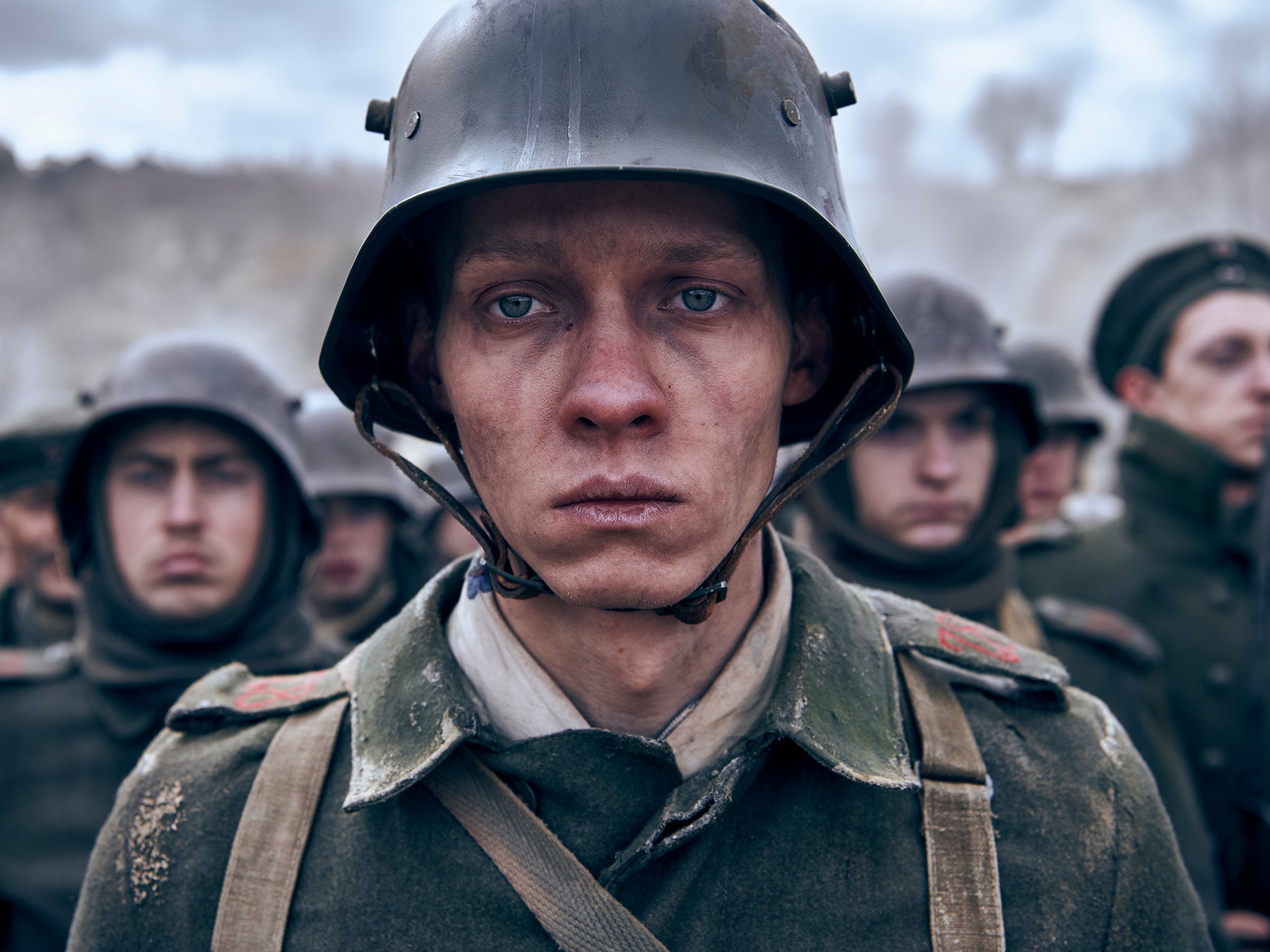All Quiet on the Western Front’s Bafta win has caused chaos. Good – awards season could really do with more anarchy
The German-produced take on Erich Maria Remarque’s piercing, anti-war novel first dropped on Netflix without much fanfare in October, writes Clarisse Loughrey. Now, it’s swept the board at the Baftas

What exactly is going on this awards season? With the Baftas crowning All Quiet on the Western Front as its Best Film winner, we’ve officially entered chaos mode. All bets are off. Anything could happen. The German-produced take on Erich Maria Remarque’s piercing, anti-war novel – in which innocent patriotism goes curdled and cold in the trenches of the First World War – first dropped on Netflix without much fanfare, back in October. The words “Bafta”, “Oscar”, and “winner” were nowhere to be seen.
Flash forward to Sunday night’s ceremony, and All Quiet on the Western Front has not only walked away with the top prize, but its cumulative seven wins mean it’s now beaten out Giuseppe Tornatore’s Cinema Paradiso as the most highly decorated non-English language film in Bafta history. Let me be clear about why exactly this win has awards prognosticators everywhere tearing their hair out. The shock here isn’t because All Quiet on the Western Front is undeserving – it’s been praised from all corners, and the reviews have been almost universally positive – but because it essentially throws out the window all the typical rules about how these awards work. People will be annoyed. But, trust me, awards season could really do with a little more anarchy.
All Quiet on the Western Front is the rejected child of the family who lands the Harvard scholarship. Netflix was busy putting its might (and its money) behind flashy names and previous nominees – Noah Baumbach’s White Noise, Rian Johnson’s Glass Onion: A Knives Out Mystery, and Alejandro González Iñárritu’s Bardo, False Chronicle of a Handful of Truths. It succeeded without anyone particularly willing it to.
As much as it’s fun to bicker over the wins every year, we always have to do so with a consciousness that a Bafta or Oscar win doesn’t always represent the best of the best. Certainly, sometimes they do! And it’s wonderful when they do. But there are always outside forces at work – studio campaigns and carefully constructed narratives. It’s always a little bit about which films were most forcefully put in front of voters’ faces.
In recent years, the Baftas have done a visibly better job than the Oscars of putting all their talk of diversity and inclusion (nominated here and noticeably missing from the Oscars were Danielle Deadwyler’s performance for Till and Gina Prince-Bythewood’s direction of The Woman King). But it’s always odd to me that something like Charlotte Wells’s Aftersun, which topped so many Best Film lists from last year and made it to #2 on mine, came away so empty-handed. It won Best British Debut, but Wells wasn’t even nominated for Best Director. Neither was the film nominated for Best Film, despite it being the only longlisted title in the category directed by a woman. Even The Woman King failed to make the cut. The reason why isn’t so hard to guess. Aftersun was distributed by MUBI. They are not Netflix. They are not Disney. If All Quiet on the Western Front felt like it came out of nowhere, imagine the uphill battle Aftersun was fighting.
Will All Quiet on the Western Front’s surprise win be repeated at the Oscars? I’m not sure. Although I think this may spell the end of The Banshees of Inisherin’s Best Picture hopes (coimisinéirí, Ireland!), All Quiet at the Western Front will have much tougher competition stateside from Everything Everywhere All at Once. Maybe I’m making a harsh judgement here, but I partially assumed that the sweeping sincerity of the Daniels’s tale of multiversal, familial love would be just a little too sweet for Baftas’ tastes. But a film about one of the two world wars? That’s pretty on-brand for them. Certainly, I don’t think Michelle Yeoh or Ke Huy Quan will lose out on Best Actress and Best Supporting Actor at the Oscars. This year is a weird one. But isn’t it sort of thrilling to have no idea what happens next?
Subscribe to Independent Premium to bookmark this article
Want to bookmark your favourite articles and stories to read or reference later? Start your Independent Premium subscription today.

Join our commenting forum
Join thought-provoking conversations, follow other Independent readers and see their replies